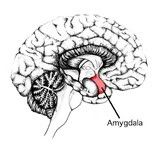
Check out this interesting article on autism in The Guardian today. It discusses 26 year-old Daniel Tammet, an autistic savant not unlike the character, Raymond, in the film "Rain Man."
Debates about the evolutionary history of autism rage on. What sort of adaptive advantage is offered by autism? Some sociologists and biologists argue it can serve certain individuals well, given the right environment and social structure. Others contend that it is strictly maladaptive. The neuroscience of the condition - the role of the left and right hemispheres and the enhanced or retarded activity in various brain modules - is also curious: much advantage is gained, but at a substantial cost.
Simon Baron-Cohen, director of the Autism Research Center at Cambridge University, has designed a test to determine your Autism Quotient. The higher the number, the more likely you are to be autistic. With a score of 27, I'm apparently approaching the autistic range, but as Baron-Cohen reminds us, even those who score above a 32 - the assigned autistic marker (the average score is 16.4) - can function normally in society.
The test, writes Steven Johnson (author of the very readable Mind Wide Open), is more of a measure of your amygdala sensitivity. As I mentioned in the "Do Fish Feel Pain and What Of It?" post, the amygdala is responsible for the flight-or-fight response and empathy. The higher the number, the more dulled the influence of the amygdala.

No comments:
Post a Comment